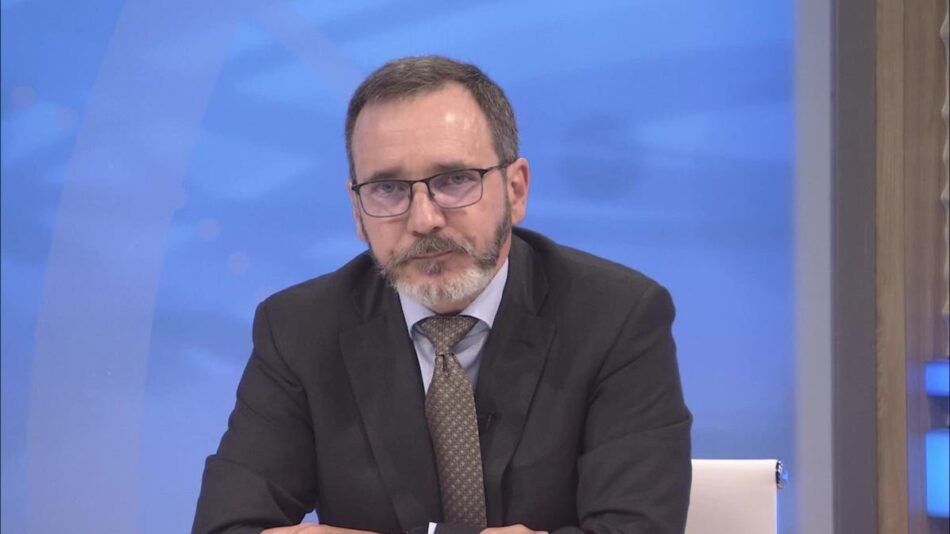IMF World Economic Outlook Presser

IMF chief economist Pierre-Olivier Gourinchas
Global growth is projected to be in line with the April 2024 World Economic Outlook (WEO) forecast, at 3.2 percent in 2024 and 3.3 percent in 2025 the IMF announced Tuesday (July 16, 2024) in Washington, DC.
Services inflation is holding up progress on disinflation, which is complicating monetary policy normalization. Upside risks to inflation have thus increased, raising the prospect of higher for even longer interest rates, in the context of escalating trade tensions and increased policy uncertainty. The policy mix should thus be sequenced carefully to achieve price stability and replenish diminished buffers.
“The good news is that ahead, as the headline inflation shocks receded, inflation came down without a recession. The bad news is that energy and food price inflation are now almost back to pre-pandemic levels in many countries, while overall inflation is not yet.” said IMF chief economist Pierre-Olivier Gourinchas in a press briefing marking the launch of July’s update of the World Economic Outlook report.
Overall, the IMF said it still expects the world economy to grow a lackluster 3.2% this year, unchanged from its previous forecast in April and down a tick from 3.3% growth in 2023.
But in a year where many large economies have elections, the Fund is emphasizing the need for government spending responsibly and credibly reducing debt levels.
“In many countries, public finances have deteriorated more than foreseen before the pandemic, leaving them more vulnerable. Gradually and credibly rebuilding buffers while still protecting the most vulnerable is a critical priority. Doing so will free resources to address emerging spending needs, such as the climate transition or national and energy security,” said Gourinchas, IMF’s head of research.
Gourinchas explained that in addition to concern over ongoing deficit spending, countries should avoid entering in to tit-for-tat trade protectionism.
“More countries are now going their own way, imposing unilateral tariffs or industrial policy measures. Our imperfect trading system must be improved, but this surge in unilateral measures isn’t likely to deliver lasting and shared global prosperity. If anything, it will distort trade and resource allocation, spur retaliation, weaken growth and make it harder to coordinate policies that address global challenges such as the climate transition. Trade instruments have their legitimate place in the policy arsenal, but because international trade is not a zero sum game, they should always be used sparingly within a multilateral framework and to correct will identify distortions. Unfortunately, we find ourselves increasingly at a remove from these basic principles,” added Gourinchas.
Global trade is not shrinking, but it is reconfiguring with countries creating new blocs Gourinchas suggested the data showing.
“Now, having said this, I should emphasize that in our report. What we are seeing for 24-25, we’re seeing a fairly robust, global, growth in trade. So trade overall has not decoupled from economic activity, but we’re seeing a lot of rearrangement of the trade flows under the surface. And at some point this will start weighing down on economic activity,” said Gourinchas.
To read the full report, World Economic Outlook Update





